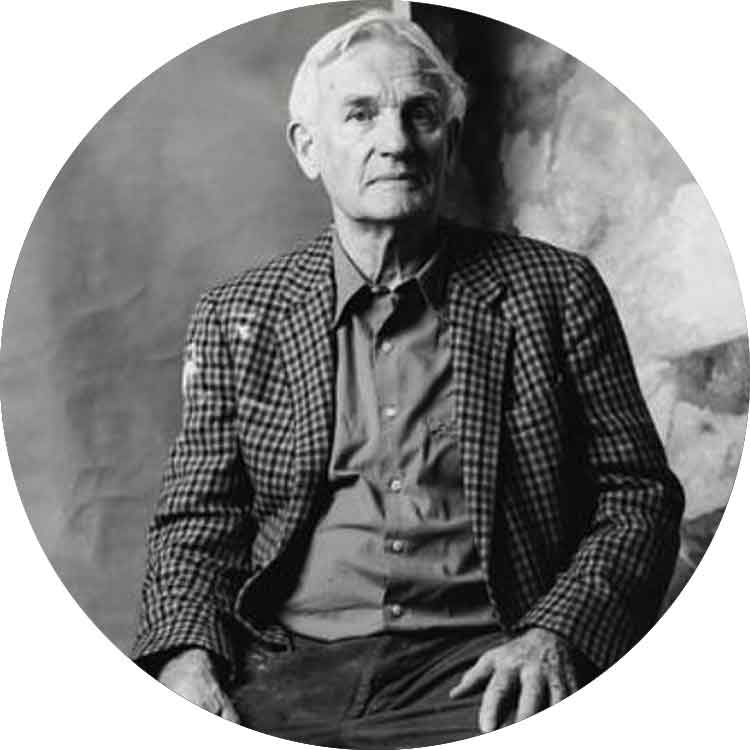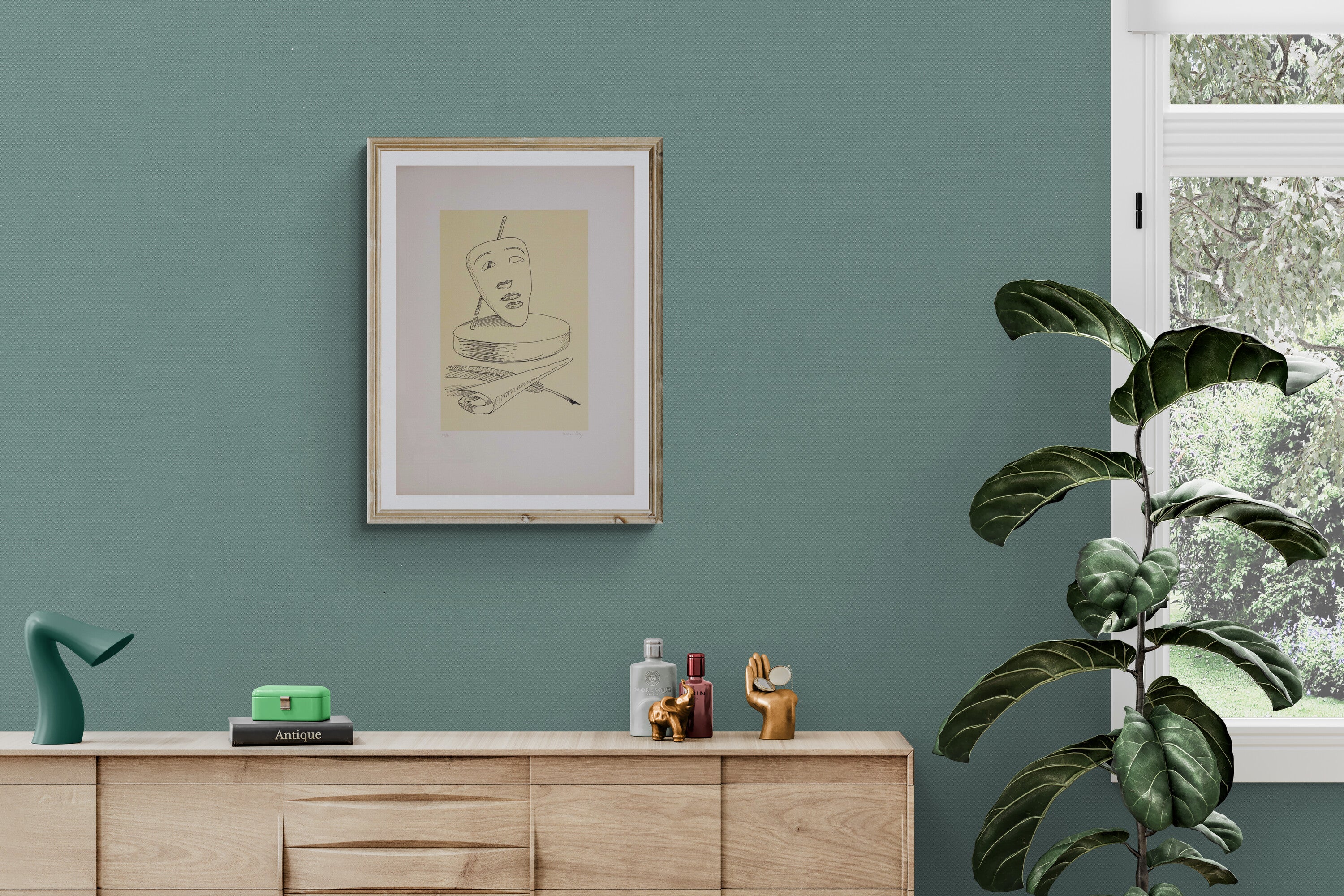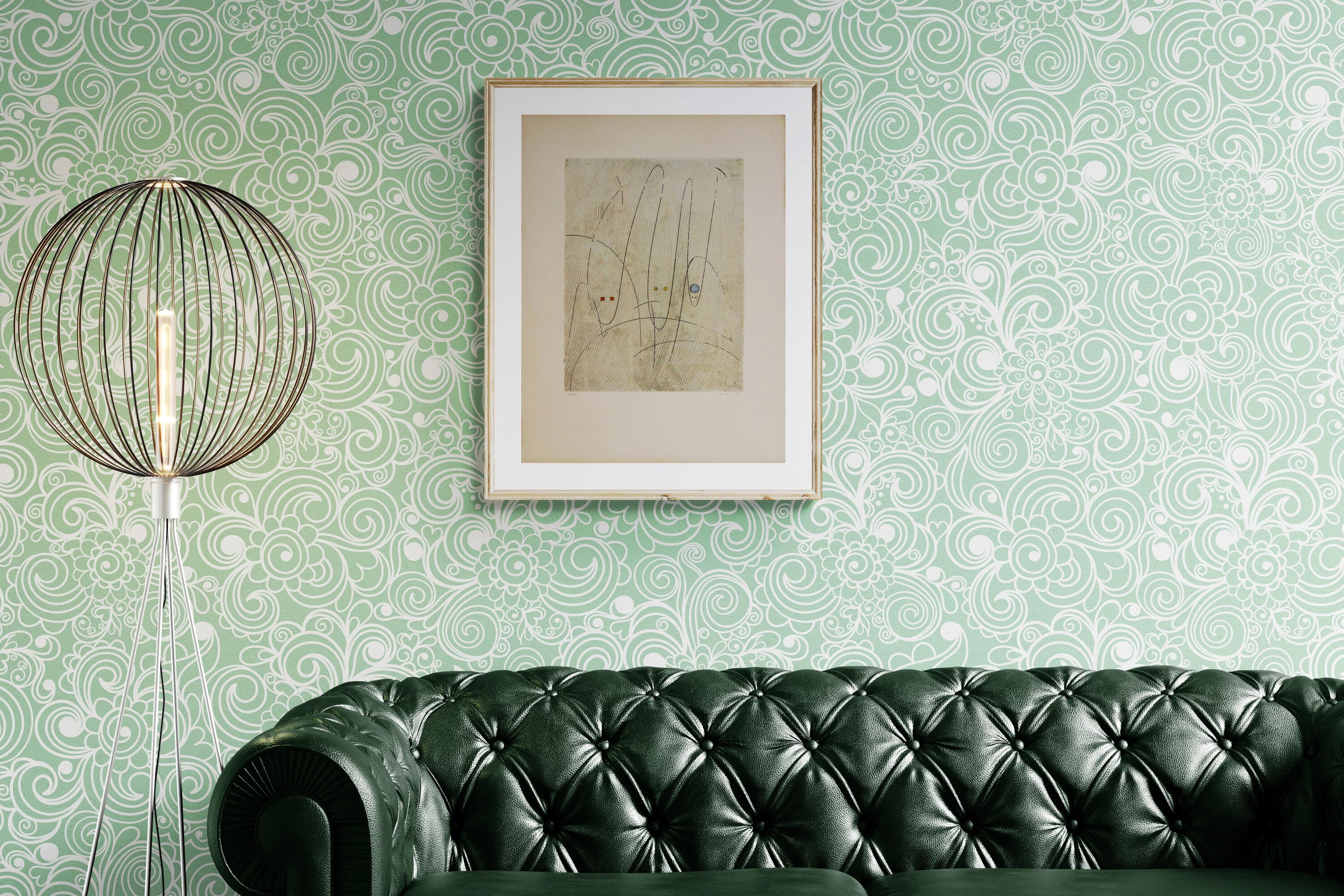Bernard Schultze biography

Bernard Schultze, born on May 31, 1915, in Schneidemühl (now Piła, Poland), was a German artist, known as one of the leading representatives of gestural abstract painting in Europe. His life and work, characterized by a strong innovative and experimental spirit, make him a key figure in 20th-century art. Bernard Schultze's artistic journey begins in Germany, where he studies in Berlin and later in Düsseldorf. During his youth, he witnesses and participates in the tumultuous events of Europe, from World War II to the post-war reconstruction. His early works, produced before 1945, are destroyed during an air raid on Berlin, an event that deeply marks his artistic expression. His first solo exhibition is held in Mannheim in 1947, marking the beginning of a prolific and highly recognized career.
In the 1950s, Bernard Schultze stands out for founding the Quadriga group together with Karl Otto Götz, Otto Greis and Heinz Kreutz. This group, influenced by surrealism and André Breton, marks the beginning of Informal Art in Germany. In 1952, the group exhibits for the first time with the "Neuexpressionisten" show in Frankfurt, where it proposes abstract, gestural, and colorful painting, in clear break with previous artistic traditions.
Bernard Schultze's innovation is clearly manifested in his "relief paintings", started in 1957. These works, made with different materials such as paper, wire, fabric scraps, and various debris, represent a fantastic and sometimes unsettling universe. The figure of the "mannequin Migof" emerges as a recurring element in his creations, symbolizing the artist's exploration of the depths of the unconscious and existentialism. These works emphasize his interest in destruction and reconstruction, themes evident in his distorted compositions and colors evocative of wounds and decay.
During his career, Bernard Schultze travels extensively, spending periods in New York, Paris, and other major cities. These stays greatly influence his style, leading him to incorporate elements of American Abstract Expressionism and Pop Art. His work develops in various directions, including zoomorphic figures and landscapes in pastel tones, as well as works on paper and sculptures.
Bernard Schultze's solo exhibitions and retrospectives are held in prestigious galleries and museums worldwide, such as the Museum Ludwig in Cologne, the Céret Museum of Modern Art, the Pompidou Center in Paris, the Tate Collection in London, the Boijmans Van Beuningen Museum in Rotterdam, and the MoMA in New York. His art is characterized by a unique chromatic poetry, expressed in sculptures, environments, and large-format paintings.
During his life, he receives numerous awards and recognitions, including the Cologne City Art Prize in 1969. He is elected a member of the Berlin Academy of Arts in 1972 and during the 1980s creates large-scale works, introducing the "tabuskri", intersections of painting and graphic structures.
Bernard Schultze spends the last years of his life between Paris and Cologne, continuing to explore and experiment until his death on April 14, 2005. His artistic legacy is fundamental to the development of abstract and informal art, leaving an indelible mark on the history of contemporary art.



